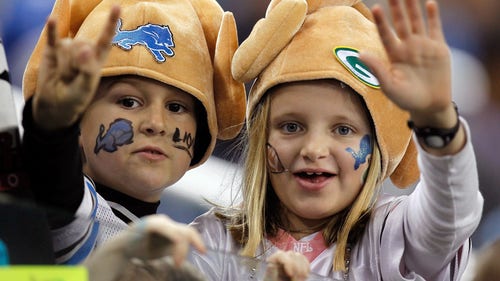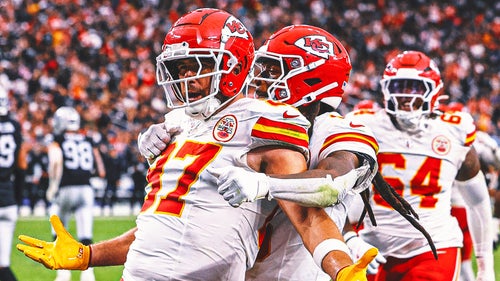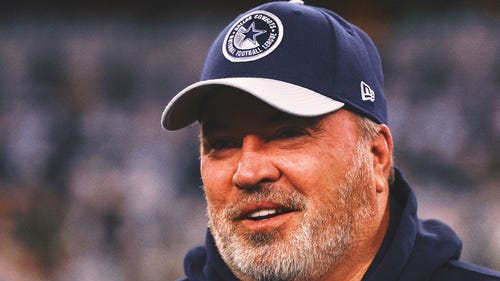
Prosecutors attempting to link Hernandez to alleged murder weapon

FALL RIVER, Mass. — An official from Glock on Wednesday told jurors in Aaron Hernandez’s murder trial that he believes home surveillance cameras captured numerous images of the then-NFL star with one of the company’s pistols in his hands.
Some of those images were captured just minutes after Odin Lloyd was shot and killed on June 17, 2013, in a secluded gravel pit less than a mile from Hernandez’s home.
Kyle Aspinwall, a former police officer and now a district manager for the Austrian gun maker, went through many video clips, and stills taken from them, that were captured by surveillance cameras in Hernandez’s home in North Attleboro, Mass.
After numerous preliminary questions, including a demonstration of the various parts of a Glock model 21, prosecutor Patrick Bomberg asked Aspinwall what he was seeing in the still blow-ups taken from the video.
“In my opinion the firearm shown in the video stills is a Glock pistol,” Aspinwall said.
Prosecutors have alleged that Hernandez “orchestrated” Lloyd’s murder after a dispute two nights earlier at a Boston nightclub. They contend he was killed with a .45-caliber Glock — a determination based on unique impressions on shell casings found at the scene and on bullets recovered from Lloyd’s body and the ground beneath where he was found.
At several points, Aspinwall stood in the jury box with a Glock Model 21 in his hands and held it in the same manner he believes Hernandez was gripping the gun in the surveillance images. He also was allowed to step down and walk in front of the jury box displaying the black pistol.
The gun that killed Lloyd has never been found; prosecutors have asserted that Hernandez’s fiancée, acting on his orders, secreted it out of their home and ditched it the day after the murder.
Aspinwall was allowed to testify over defense objections, and his testimony was a precursor for showing the jurors photographs of Hernandez in his home minutes after Lloyd is believed to have been killed holding what prosecutors allege was a Glock.
After the judge sent the jury out of the courtroom for the morning break, defense attorney James Sultan argued that Aspinwall should not be allowed to testify that he believes the item in the images in Hernandez’s hands is a Glock pistol. Sultan termed Aspinwall a “salesman for Glock” and not an expert in gun manufacturing.
“Your honor, it would be an abuse of discretion to allow someone to testify, to offer a so-called expert opinion, that is beyond his area of expertise,” Sultan said.
Prosecutor Patrick Bomberg countered that Aspinwall has extensive expertise in firearms and in the unique features of Glock pistols.
Judge E. Susan Garsh, after taking time to read case law, ruled against the defense, clearing the way for Aspinwall to render an opinion to the jury that Hernandez is holding a Glock in images captured by his home surveillance system.
That ruling was a clear victory for the prosecution.
Sultan had only a few minutes to question Aspinwall before court was adjourned for the day, and he got the Glock official to acknowledge the company made roughly a dozen different models of .45-caliber guns. Aspinwall also agreed that another model made by the company looks similar to the Model 21 he brought to court. But Aspinwall disagreed with Sultan’s assertion that other companies make guns that look like Glocks.
Sultan’s cross-examination will continue Thursday, and it’s expected that he will work hard to discredit Aspinwall’s testimony.
Jurors on Wednesday also saw video of the then-NFL star on a Boston street that was recorded shortly after a hotel valet manager reported seeing him with a gun.
That incident occurred shortly before 2 a.m. on June 15, a little more than 49 hours before Lloyd is believed to have been killed.
The valet manager had testified he saw Hernandez with what appeared to be a semiautomatic pistol tucked into his waistband and told Jeffrey Keane, the security manager at the W Hotel, about it. Keane then followed Hernandez and watched him for a time, and jurors saw video of Hernandez standing on a street corner, with people around him.
Prosecutors have suggested that Hernandez grew angry with Lloyd after an incident at a nearby nightclub, then went to his rented Suburban and grabbed a gun.
Keane, under cross examination from defense attorney Michael Fee, acknowledged that he concluded that Hernandez didn’t have a gun. But he also said Hernandez’s sweatshirt was covering his waistband and that both his hands were in a pouch-type pocket in the front of the garment.
Prosecutors have alleged that Hernandez arranged to meet Lloyd and at the same time summoned two associates, Ernest Wallace Jr. and Carlos Ortiz, from Bristol, Conn., to his home in North Attleboro late the night of June 16, 2013. From there, the trio allegedly set out for Boston — roughly an hour’s drive — at about 1:10 a.m. on June 17.
After picking up Lloyd in Boston’s Dorchester neighborhood, Hernndez allegedly drove the group back to North Attleboro, pulling into a secluded area in an industrial park less than a mile from the player’s mansion.
Hernandez faces one count of murder and two firearms charges in the slaying of Lloyd, who was dating Shaneah Jenkins, the sister of Hernandez's fiancee.
Prosecutors have not said who they believe fired the fatal shots, and Ortiz and Wallace have also been charged with murder and will be tried separately. Under a Massachusetts law often referred to as “joint venture,” a person can be convicted of murder even if someone else carried out the actual killing. To prove that, prosecutors would have to convince the jury that Hernandez knowingly participated in the killing and did so with intent.
Outside the courtroom, prosecutors appealed two of Judge Garsh’s earlier rulings blocking two pieces of so-called “bad acts” evidence: testimony in one case from a man who alleged that Hernandez shot him in Florida in February 2013 and additional testimony from a man who said the player talked about having a gun in California in April 2013.
Alexander Bradley, a longtime associate of Hernandez’s, alleged in a civil lawsuit that his friend shot him after a dispute at a Florida nightclub on Feb. 13, 2013. Bradley did not cooperate with police investigators, and no criminal charges were filed.
Prosecutors want the jury to hear Bradley’s story to blunt the defense’s recurring argument that Hernandez and Lloyd were friends, and that the then-NFL star would have no reason to shoot a friend.
The other man, Robert Paradis, went to California with Hernandez and Wallace in April 2013. He has asserted that Hernandez talked of having a “45,” and “fire” and “heat” — references he interpreted as meaning a pistol.
Defense attorneys argued that allowing the testimony of both Bradley and Paradis would be unfair because it would suggest Hernandez had a propensity for violence without offering any tangible evidence about the shooting of Lloyd.
In both cases, Judge Garsh ruled that the prejudice to Hernandez would outweigh the “probative value” of the testimony.
It is not clear how soon the Supreme Judicial Court might rule on the motion.
Hernandez has separately been indicted on multiple murder and assault charges in a July 16, 2012, shooting in South Boston that left two men dead and another wounded.
In the Boston killings, prosecutors have alleged that Hernandez became enraged after a man bumped him on a nightclub dance floor, spilling his drink, and failed to apologize. They alleged that Hernandez later followed the man and his friends as they drove away from the club, then pulled up next to their car at a stoplight and opened fire with a .38-caliber revolver, killing Daniel De Abreu, 29, and Safiro Furtado, 28, and wounding another man.
That trial originally was scheduled to begin May 28, but the judge there indicated recently he would push it back given the anticipated length of the trial in the Lloyd case. No new trial date has been set.










